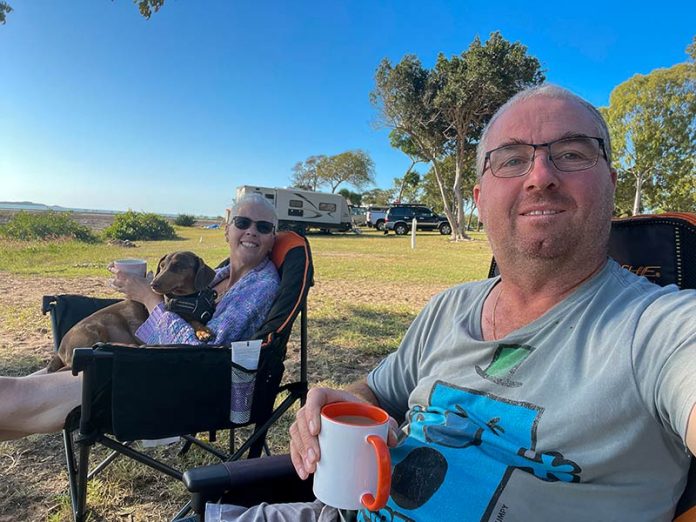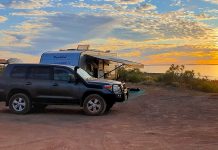I think it’s fair to say that, before the days of social media, the full-time travelling lifestyle was almost exclusively the domain of grey nomads. Couples in their 60s (and older), retired from work, hitting the road in a 4WD with the caravan in tow, chasing an endless summer. It was unusual to see younger couples and families doing the same thing.
Today, with the proliferation of platforms like Facebook, Instagram and TikTok, travellers have been able to share their experiences with a much wider audience, enticing a whole new generation to leave the big smoke behind and hit the road for good. Today, with many of these new travellers becoming social media influencers, the lifestyle has a very glamorous image. Unfortunately, for many who embark on the full-time travelling lifestyle, the reality falls far short of the expectations set by the influencers.
This month, we want to share with you the not-so-glamorous aspects of full-time travel so you know what to expect. Most importantly, we will give you our strategies for dealing with these issues so you can continue to enjoy your journey.
HANG ON, WHAT’S THE PROBLEM?
Before I go further, I should probably explain something as I expect there are more than a few of you wondering how there could be any issues with a lifetime of freedom.
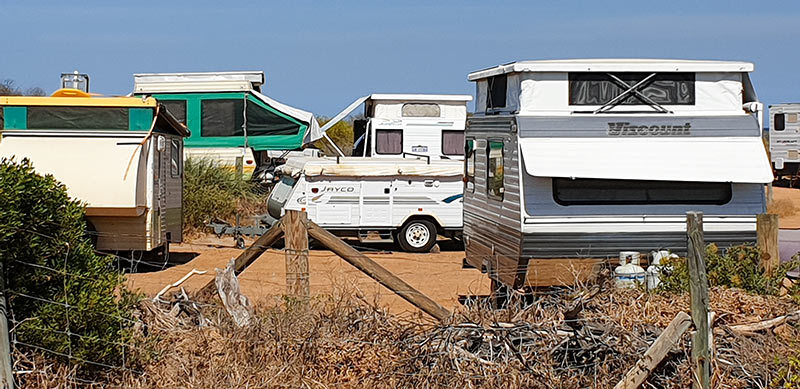
Many people don’t realise that there is a vast difference between holidaying in a caravan for a few weeks and living in one full time. For a start, when you’re on holiday, you are trying to get away from all the complications of life at home so you don’t need to take a lot of stuff with you. But when you live full time in a caravan, you have to somehow shove your entire life into the confined spaces of your car and caravan, all without exceeding their weight limits.
Another important difference is that the small things that may annoy you about your caravan, which may not be problematic for a few weeks a year, could see you trading in your caravan and buying a new one after a few months on the road. Okay, that may be a bit extreme but consider if the bed is uncomfortable or you don’t have enough storage space for all your gear. What if you’re stuck inside your van for three days because of the weather and the seating is uncomfortable?
You will want to ensure you address all these issues before you head off or you could be up for some very expensive modifications at the very least.
FINANCIAL STRESS
If you think managing the budget at home while you’re earning a regular wage is hard, wait until you try to finance full-time travel with a limited income. It’s little wonder one of the most asked questions on caravanning groups is how much it costs to travel full time.
The problem is the answer is different for everyone. Some people seem to be able to travel for little more than $1000 per week, while others would find that nearly impossible. Either way, if you haven’t thought about your budget or you find yourself struggling to survive on a limited income, it can be the cause of many arguments and may be the reason you end your journey prematurely.
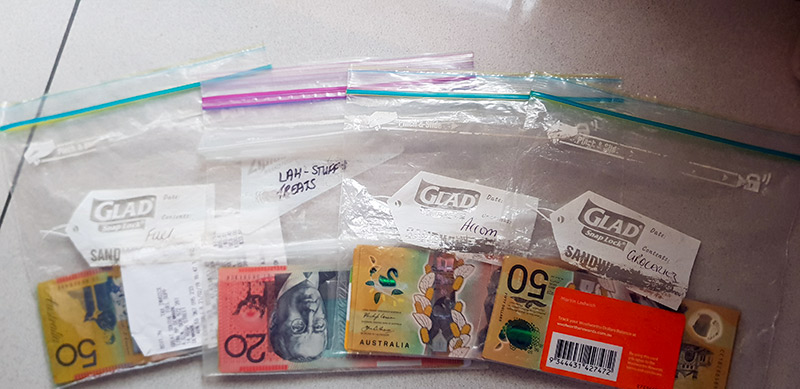
Fortunately, financial management is relatively easy. Have a look at your expenses and divide them into categories. Groceries, fuel, accommodation, pocket money, ad-hoc expenses, car maintenance, etc. Calculate an average spend on these categories each week and set that as the limit you can spend on each category. Now get yourself a handful of sandwich bags and each week, withdraw the total weekly spend in cash from your bank account and place the budgeted amount for each category in its own bag. Avoid using your credit cards and don’t withdraw any more cash from the bank unless it is absolutely necessary.
Each week, you will have a surplus in one category and, perhaps, none in another. How you deal with that is up to you but try to use any left-over cash to bolster your finances in the next week or put it away to save for special events and activities. This will ensure you keep on top of your spending and reduce financial stress.
Looking at the issue deeper, you may have your weekly budget under control but a sudden catastrophe such as a major mechanical breakdown or an unexpected medical emergency could also bring your travel dreams to a sudden end.
Before you travel, I highly recommend you put aside a lump sum of at least $30,000 in a separate bank account and forget about it. This will be your emergency fund for things like unexpected breakdowns, medical bills or the need to travel home for an emergency.
NOT ALL OF AUSTRALIA IS BEAUTIFUL
If you follow enough travellers on Instagram, you will be forgiven for thinking that Australia is an endless paradise full of idyllic locations that you can have all to yourself. While our country is blessed with many spectacular places, some so remote that you’re nearest neighbour is 300km away, the reality is that much of it is cities and towns separated by endless miles of nothing. For many travellers, that can be appealing, but if you go out with the view that you will love every place you intend to visit, you will be disappointed.
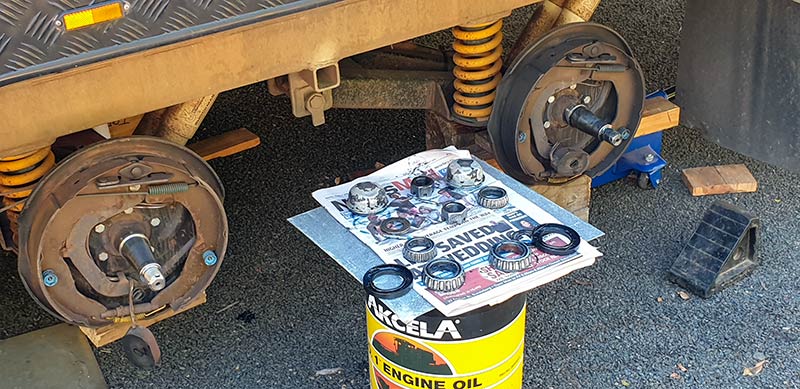
I was talking to a friend of mine recently who had just completed the Gibb River Road and, while he said a lot of it was spectacular, some of the more lauded places of interest were, in his opinion, overrated. The road was also in a fairly ordinary state and he questioned whether the whole experience was worth the wear and tear on his rig and his gear.
I completely understand where he’s coming from. I remember the first time I drove to Cape York. When I got to the tip, I couldn’t help but feel a sense of dread at the thought of driving all the way back. Australia can be a very challenging country to get around, especially those places influencers have told us we must see.
My friend also remarked on just how many people were there at the same time as him. In some places, they had so many vans and campers packed together that he couldn’t use his awning. Again, if you travel the northern half of the country from May through to July, you have to expect there to be hundreds, perhaps thousands, of other travellers at the popular places.
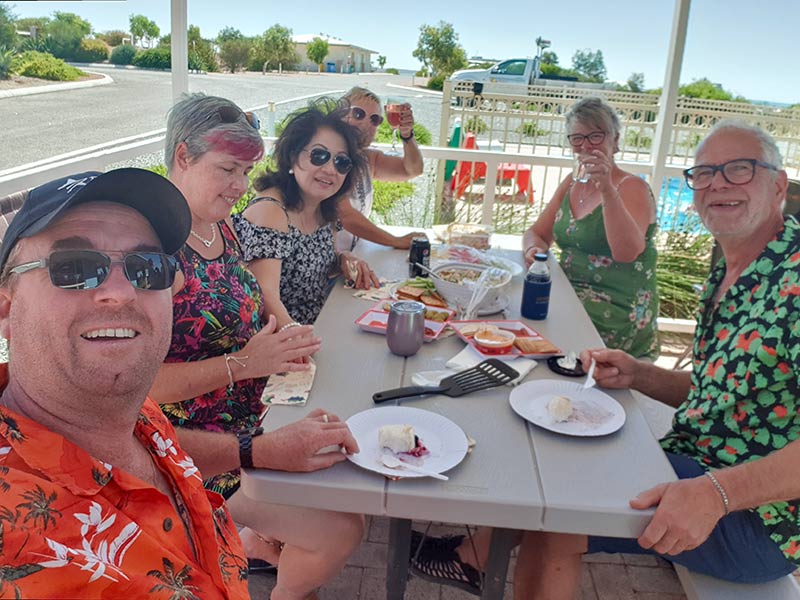
My advice is to look beyond the enhanced photos on social media and research your trip thoroughly, especially if you intend to go offroad and visit Australia’s iconic locations. Remember, we all have differing opinions on everything, from the condition of a dirt road to the value for money of a caravan park. Read reviews and traveller stories but take everything with a grain of salt. And if you want to avoid the crowds, consider touring out of season. You may have to put up with some extra heat and humidity, but you would be surprised how quickly you can adapt to the conditions.
GETTING BORED
When you go on holiday, the idea of sitting around and doing nothing may actually be appealing but, when you’re living full time on the road, finding yourself with endless days having nothing to do can become very tedious very quickly.
I cannot stress enough how important it is to have some activity you enjoy doing to occupy your time. It can be almost anything and it doesn’t need to be an expensive hobby.
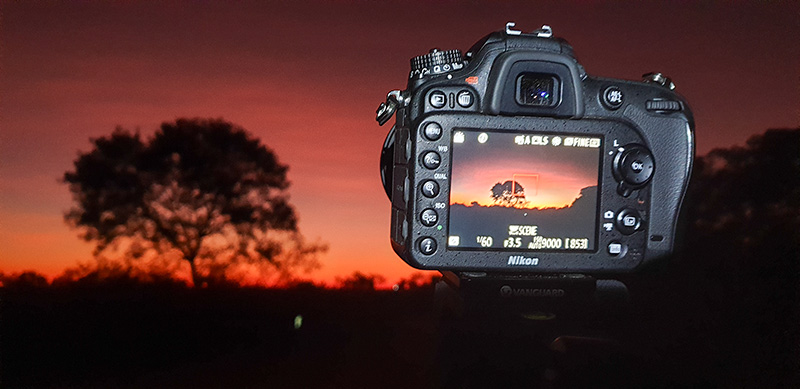
We have always travelled with dogs and they love nothing more than going for walks, playing on a beach or visiting a local dog park. Honestly, if you take your dog with you, you will always have something to do as dogs need to be kept active and entertained as much as their human owners do.
I also believe it is important to have interests that you can enjoy as individuals, just so you can have some time apart from each other. I like fishing, photography, flying my drone and metal detecting. I also have this writing gig that keeps me busy a few days each month. My wife took up diamond dotting and crocheting, things I never thought she would be remotely interested in but she found satisfaction in them after giving them a try.
And I guess that’s the key. Use the opportunity of having time on your hands to try out something that you’ve always been interested in but never had the time to do before. If you need ideas, talk to other travellers to see what they do to entertain themselves.
CARAVANNING WILL TEST YOUR RELATIONSHIP
Of all the issues that you may face when travelling full time, the strain on your relationship is the one that is probably the most overlooked.
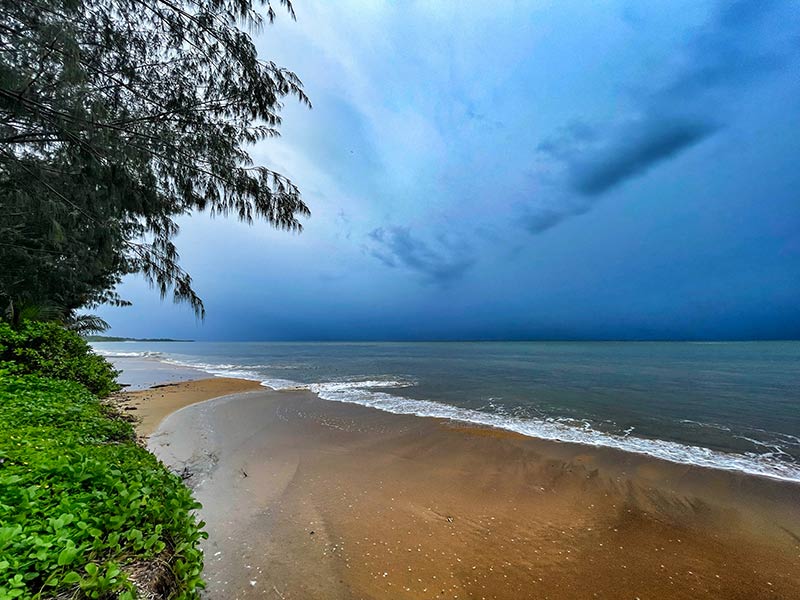
Consider for a moment, when living at home, you don’t normally spend 24 hours a day, seven days a week with your partner or family in the one room. Living together in a caravan is like living in a 21ft box. There literally is no escape from each other. Relationship issues will be magnified tenfold simply because you have to live very closely with each other.
What’s worse, when an argument breaks out, and trust me, there will be times when one of you will lose your patience, everyone around you will know about it, especially if you’re staying in a crowded caravan park. There is very little privacy unless you’re camped in the middle of nowhere.
Relationship issues are probably the most difficult to overcome while living on the road. In fact, many people see this as the reason they wouldn’t embark on a travelling lifestyle in the first place. The reality is, for many people, their relationship with their partner or their family dynamic just won’t survive living full time on the road.
I can’t speak for anyone else as every relationship is different, but when it comes to Kylie and I, we found that we had a better relationship living on the road than we did before we left. Why that is, I can only speculate. We had done a lot of travelling before, much of it in camper trailers and caravans so we had a pretty good idea of what the experience was like.
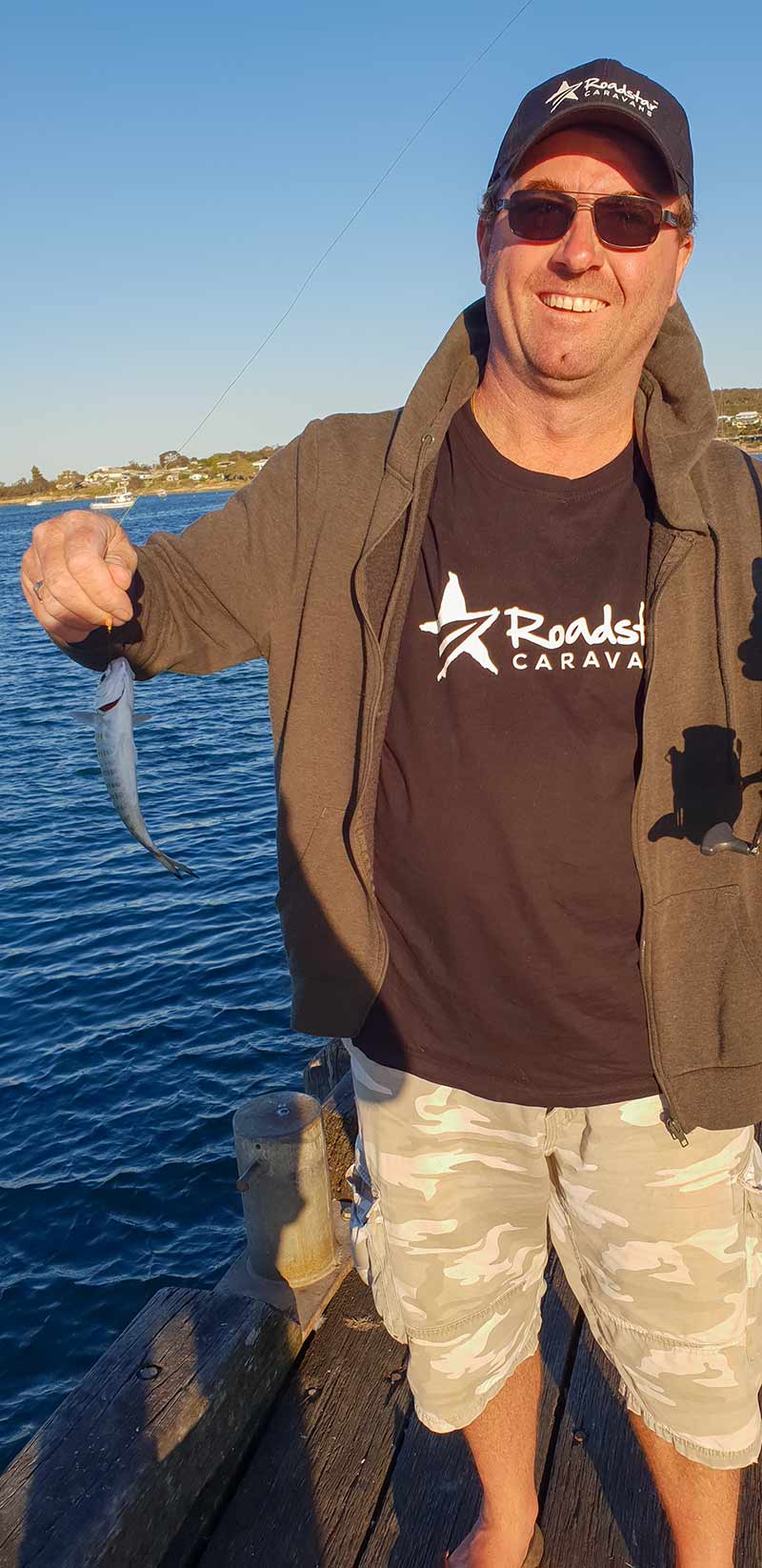
We also spent a lot of time preparing our setup to ensure we had the room in the van we needed for all our gear and that it was comfortable enough for extended periods of bad weather. Kylie is also a great money manager, so finances were never an issue. We both had plenty of things to occupy our time. So I suppose you could say that we had addressed many of the issues I’ve just described well before we left. That certainly helped.
Without question, the key to our success was that we saw the travelling lifestyle as a means to an end. We’d both worked for all our adult lives, mostly in stressful jobs and we wanted to leave those stresses behind. We both had dreamed of living on the road for a long time, meaning the two of us went into it knowing it was what we both wanted. There were no doubts.
THAT BRINGS ME TO MY FINAL POINT
If you have any reservations about living full time on the road, but you still think it’s what you want to do, I suggest you try it out before fully committing to it.
Save up your holidays and long-service leave and take a long trip away in your caravan. Three months should be enough time to experience many of the issues I’ve described here and probably a few others I haven’t covered. If you can survive three months on the road, you should be able to thrive for longer periods of time.
Safe travels.


